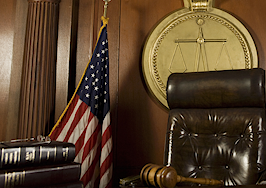For nearly a decade, Airbnb has grown exponentially across the country and around the world. The short-term rentals platform that allows residents to rent out properties or rooms in their homes by the night is now a full-fledged alternative to hotels in cities across the globe.
But in one of its most prominent markets, Airbnb continues to face significant opposition. New York City — a gigantic market of early importance to the company now worth $38 billion — still presents Airbnb with an ongoing legal battle and organized opposition from lawmakers, hotels and interest groups.
Here’s everything you need to know about Airbnb’s fight in New York, including how it affects homeowners, renters and visitors in the city.
New York’s history with Airbnb
Airbnb launched during a late-2000s tech boom that introduced the sharing and gig economies, categories that includes Uber and startups like Postmates and TaskRabbit.
Uber — the sharing economy company usually referred to in the same breath as Airbnb — took the approach of blowing past regulations and making itself indispensable before regulators caught on, otherwise known as asking for forgiveness, not permission. Airbnb tried a similar approach but has had less success — a problem that is most apparent in New York.
New York City has a law on the books called the “multiple dwelling law” that governs housing in the city. An amendment added to the law in 2010 — around the same time Airbnb was getting off the ground — targeted illegal hotels, making it illegal for anyone to rent out apartments in shared buildings for under 30 days. This law was passed before Airbnb significantly entered the picture, but on a technicality it makes a vast portion of New York City Airbnb listings illegal and has given Airbnb’s opponents legitimate ammunition.
The law is the tool, but the main players are the hotels. Hotels, hotel unions and politicians with an interest in keeping hotel interest groups happy have wielded Airbnb’s technical illegality in their battle with the startup. Hotels had long enjoyed the profits of New York’s multi-billion-dollar tourism industry, and the introduction of Airbnb threatened that monopoly. As Airbnb has grown over the past decade, hotels have taken measures to try to stem that growth.
Airbnb also draws the ire of affordable housing advocates. New York is an increasingly expensive city with ballooning housing costs. Apartments being used for short-term stays for tourists, instead of housing New York families, further boosts the cost of available housing.
Affordable housing advocates closely track the median number of nights an Airbnb listing is rented to see if housing has been taken off the market permanently. They also pay attention to whether a listing is for a room within an apartment — which wouldn’t remove a residence from the long-term housing market — or, instead, an entire unit.
Researchers have found that Airbnb has contributed to higher rent, loss of housing from the rental market and gentrification throughout New York. Some of that research has been funded by the hotel industry.
The confluence of these dramas has led to a dramatic battle between Airbnb and the city and state of New York. The fight has ebbed and flowed over the past few years, reaching a peak almost two years ago with a rule that made online listings for rentals that violated the multiple dwelling law illegal. That means New Yorkers who list homes on Airbnb could be fined thousands of dollars simply by posting on the platform.
What’s next for Airbnb in New York
New York’s battle against Airbnb picked up steam this summer. The New York City Council voted in June to more closely regulate Airbnb.
The bill, which hasn’t been made law yet, would require Airbnb to provide the city with its hosts’ names and addresses and to note whether those hosts are renting out rooms or entire residences. The regulations would also apply to other home rental sites like HomeAway.
“The vacancy rate in New York City is very low,” Council speaker Corey Johnson said before the vote, according to the New York Times. “We’re in an affordable housing crisis. We’re in a homelessness crisis. And Airbnb will not give us this data.”
Regulators in other cities have already cracked down on Airbnb like this. Those regulators have also put in place stricter rules governing taxes on Airbnb bookings, equivalent to the tax paid when consumers make a hotel booking — something Airbnb has largely supported. In the United States, San Francisco and New Orleans have closer regulations governing Airbnb.
As long as New York’s law governing advertising is on the books, Airbnb remains a risky prospect for hosts who want to rent out apartments that violate the rules. New Yorkers can and have been fined for posting listings for their apartments in shared buildings.
If those fines and risks lead fewer New Yorkers to post their properties on Airbnb, there will be less availability for Airbnb guests in New York and Airbnb itself will take a hit.
But the New York vs. Airbnb fight is very much still ongoing. Airbnb is backing a lawsuit brought by an Airbnb host against the city over $32,000 in fines against him. Mayor Bill de Blasio has said he supports the city council’s recent bill.
While Airbnb tends to highlight the effects of these regulations on individual hosts who rent out their homes to earn extra cash, a large portion of Airbnb listings are posted by large property owners who list multiple properties and have turned Airbnb rentals into a true business. Those hosts — who technically violate Airbnb’s rules — worry affordable housing advocates the most.
The biggest problem for Airbnb is that its highest profile fight is taking place in such a high profile city. If New York takes further action against the platform, other cities may follow suit. Just this week, New York took steps to put in place stricter regulations against Uber — a sign of regulations to come in New York and in other cities that follow suit.
Stay tuned.













